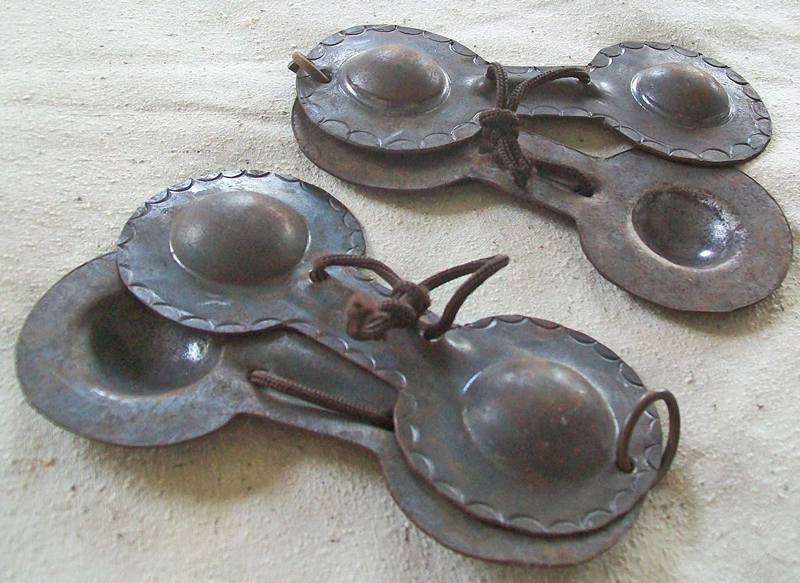(A pair of karkabas, fair trade. Gnawa metal castanets.)
The karkabas, a musical instrument intricately tied to Gnawa music, a traditional genre originating from Morocco. Indeed, karkabas play a significant role in this North African cultural expression. This handheld percussion instrument, a type of castanet, belongs to the idiophone family, producing sound through the vibration of its own body.
Structurally, the karkabas consists of four cymbals, arranged in pairs on each side and connected by a string. Musicians typically play one instrument in each hand, enabling simultaneous use. In the context of Gnawa music, the karkabas are played in a manner that keeps the cymbals closed between strikes, resulting in a distinctive clanging sound upon impact.

Often, the karkabas are accompanied by other instruments, such as the guimbri (also known as sintir). Within the specific rhythms played by Gnawa musicians, the karkabas symbolize freedom. Gnawa music, deeply embedded in the history and culture of Morocco, encompasses both a musical style and a religious brotherhood.

Other names for this instrument include: Qaraqsh, Qaraqueb , Qarkeb, Qraqeb, Tiqarqaawen, Shaqahaq, Qarkabeb.


